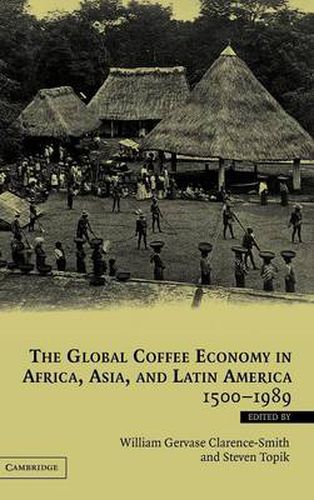Readings Newsletter
Become a Readings Member to make your shopping experience even easier.
Sign in or sign up for free!
You’re not far away from qualifying for FREE standard shipping within Australia
You’ve qualified for FREE standard shipping within Australia
The cart is loading…






Coffee beans grown in Brazil, Colombia, Vietnam, or one of the other hundred producing lands on five continents remain a palpable and long-standing manifestation of globalization. For five hundred years coffee has been grown in tropical countries for consumption in temperate regions. This volume brings together scholars from nine countries who study coffee markets and societies over the last five centuries in fourteen countries on four continents and across the Indian and Pacific Oceans, with a special emphasis on the nineteenth and early twentieth centuries. The chapters analyse the creation and function of commodity, labour, and financial markets; the role of race, ethnicity, gender, and class in the formation of coffee societies; the interaction between technology and ecology; and the impact of colonial powers, nationalist regimes, and the forces of the world economy in the forging of economic development and political democracy.
$9.00 standard shipping within Australia
FREE standard shipping within Australia for orders over $100.00
Express & International shipping calculated at checkout
Coffee beans grown in Brazil, Colombia, Vietnam, or one of the other hundred producing lands on five continents remain a palpable and long-standing manifestation of globalization. For five hundred years coffee has been grown in tropical countries for consumption in temperate regions. This volume brings together scholars from nine countries who study coffee markets and societies over the last five centuries in fourteen countries on four continents and across the Indian and Pacific Oceans, with a special emphasis on the nineteenth and early twentieth centuries. The chapters analyse the creation and function of commodity, labour, and financial markets; the role of race, ethnicity, gender, and class in the formation of coffee societies; the interaction between technology and ecology; and the impact of colonial powers, nationalist regimes, and the forces of the world economy in the forging of economic development and political democracy.